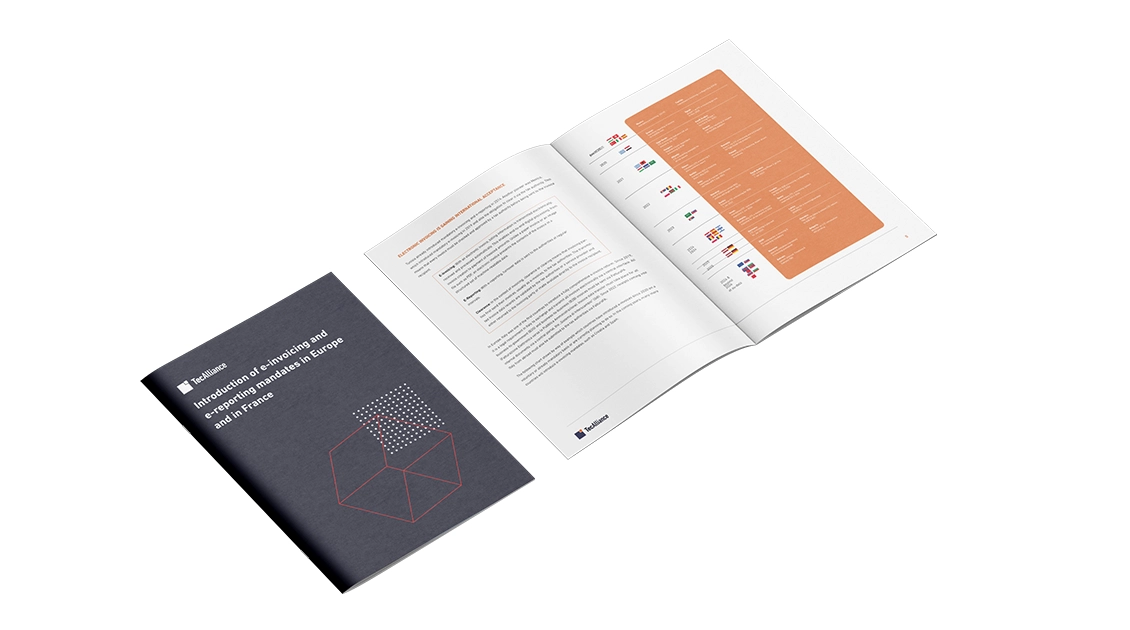In our latest whitepaper, titled “Introduction of e-Invoicing and e-Reporting Mandates in Europe and France”, we explore the critical importance of e-invoicing and its implications for businesses. Prepare now for the upcoming changes that will impact all companies subject to VAT in France.
In recent years, the international landscape has witnessed a significant acceleration in the adoption of e-invoicing and e-reporting mandates, driven by a global shift towards digitalisation. E-invoicing serves as a key lever for businesses to reduce administrative costs, enhance productivity, automate processes, and simplify reporting obligations, especially in the realm of Value Added Tax (VAT).
The European Union, recognising the potential, set the stage for e-invoicing through the adoption of the “Directive on electronic invoicing for public contracts” in 2014. By 2030, most European countries are expected to mandate e-Invoicing and e-Reporting for business-to-business transactions.
Navigating France’s e-invoicing reform
In France, the upcoming legislative reform will impact all companies subject to VAT. Initially scheduled for a gradual introduction from July 2024, the reform has been strategically postponed to ensure a seamless transition.
Starting September 2026, the receipt of electronic invoices will become mandatory for companies in France. By September 2027, all companies will also be obligated to issue electronic invoices.
Our whitepaper delves into the benefits of digitalising invoices, provides general insights into the evolution of e-Invoicing in Europe and specifically in France. The free resource outlines legislative milestones, such as the introduction of the Chorus Pro portal for B2G invoices, and explains the Continuous Transaction Control (CTC) model chosen by France, known as the Y model.
Paving the way for a smooth transition
We advise businesses to proactively prepare for the upcoming changes and choose the right PDP (certified private dematerialisation platform) as soon as possible. Our whitepaper helps you to get ready for the upcoming requirements, ensuring a smooth transition.
